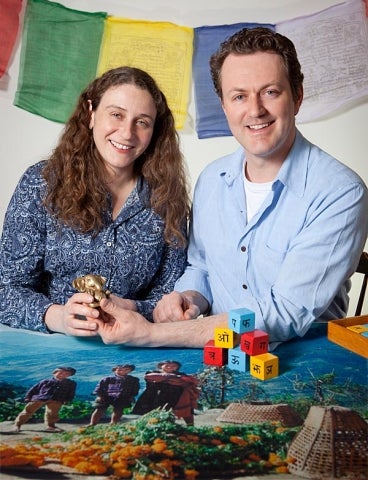F&ES Launches First Online Courses in Religion and Ecology
This fall, Professors Mary Evelyn Tucker and John Grim will launch for the first time two online courses in the study of religion and ecology. While the courses will initially be open to Yale students only, the instructors intend to eventually make it available to a wider audience.
 <p class="p1"> Sara Shneiderman and Mark Turin hold a statue of Ganesha, a Hindu god. The children’s blocks are for learning the Devanagari script, in which Nepali and Hindi, as well as many other South Asian languages, are written. Buddhist prayer flags hang in the background.</p>
<p class="p1"> Sara Shneiderman and Mark Turin hold a statue of Ganesha, a Hindu god. The children’s blocks are for learning the Devanagari script, in which Nepali and Hindi, as well as many other South Asian languages, are written. Buddhist prayer flags hang in the background.</p>